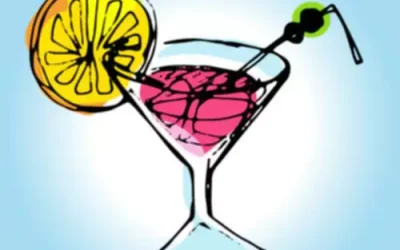Content
Hallucinations, confusion or agitation may be experienced, as well. Because WKS is composed of two separate diseases, there are two unique sets of symptoms that can indicate the development of WKS. If untreated and alcohol drinking continues, they then progress into those of Korsakoff’s psychosis. The signs and symptoms of wet brain vary based on how advanced the condition is. For example, some people have dementia-like symptoms and others may only experience a decline in vision and a loss of fine motor functions. Research shows that wet brain is more likely to develop in men than women.
She and her family are finding a way to live well – with her diagnosis. Dr Gratwicke works for the NHS at St Thomas’ Hospital as well as practicing privately at London Bridge Hospital, part of HCA Healthcare UK, where sufferers are twice as likely to be female. He acknowledges that the condition is something those in their 30s, 40s and 50s are increasingly alert to.
What are the Other Diseases Caused by Alcohol?
Addiction Resource does not offer medical diagnosis, treatment, or advice. Only trained and licensed medical professionals can provide such services. If you or anyone you know is undergoing a severe health crisis, call a doctor or 911 immediately. For those who’ve been diagnosed with the syndrome, the goal is improving symptoms and delaying disease progression. Additionally, a patient experiencing symptoms must seek medical treatment immediately in order to catch it in time for it to be treatable.
- Healthcare providers diagnose Wernicke-Korsakoff syndrome using a physical exam.
- If the deficiency is a result of Alcohol abuse, the patient will need to seek professional treatment.
- A person may also start to neglect their responsibilities as a result of frequent hangovers.
- While these conditions can occur separately, they are commonly diagnosed together.
All these observations point to the brain’s pre-dementia state, thereby supporting earlier studies on the relationship between alcohol consumption and dementia. Stopping drinking may slow the progression of Wernicke Korsakoff Syndrome and improve the chronic symptoms that come with it. At Resurgence Behavioral Health, we can help you or your loved one stop drinking and remain in recovery for good through our integrated detox and rehab programs. Some people will make a full recovery, although this is a rare outcome. Varying levels of improvement are usually seen within 5 to 12 days of beginning Thiamine treatments.
How Long Does WKS Treatment and Recovery Last?
The majority of deaths are caused by infections to the lungs, high blood toxicity, or permanent brain damage. The problems with thiamine absorption are not exclusive to the brain. what is mush brain Wet brain alcoholism actually starts in other organs—specifically, the liver and digestive tract. The liver stores thiamine and the gastrointestinal tract extracts it from food.

Approximately 6.2% of Americans aged 18 years old and older meet the clinical criteria for alcohol use disorder. When most people think about drinking-related problems, they picture car accidents, fights, and run-ins with the police. But problem drinking can also lead to a range of severe and sometimes irreversible health problems. The more someone drinks and the longer someone drinks without quitting, then the higher their risks of developing cancer, liver damage, sexual dysfunction, and nutritional deficits. During the final stages of wet brain, also called Korsakoff’s psychosis, a person has sustained massive thiamine deficiency. This means that wet brain progression has been allowed to occur for an extended period of time, thus killing brain cells and causing irreversible brain damage.
What is the Wet Brain Prognosis?
The Verified badge on our articles is a trusted sign of the most comprehensive scientifically-based medical content. If you have any concern that our content is inaccurate or it should be updated, please let our team know at [email protected]. According to the research, hypoglycemic patients should be administered glucose urgently to prevent them from going into a coma. But thiamine MUST be delivered to them as soon as their blood sugar levels normalize. The FHE Health team is committed to providing accurate information that adheres to the highest standards of writing. This is part of our ongoing commitment to ensure FHE Health is trusted as a leader in mental health and addiction care.
- For these reasons, it’s important to treat wet brain once the symptoms appear.
- The confusion makes it difficult for them to realize anything is wrong and seek treatment.
- Consuming alcohol in moderate amounts is not necessarily bad, and alcohol is even reported to have certain health benefits.
- Patients may not even realize that they have symptoms of this disorder.
While some patients in the second stage of wet brain will have some symptoms reverse, there is typically permanent brain damage. For these reasons, it’s important to treat wet brain once the symptoms appear. Wet brain treatment also requires abstinence from alcohol to prevent more vitamin B1 deficiencies. Korsakoff psychosis is the second stage of Wernicke-Korsakoff syndrome (wet brain). While treatment can be provided, damage to the brain is permanent and leads to dementia and acute mental decline. The second stage of wet brain can be diagnosed by a medical professional and is treated in similar ways to Wernicke encephalopathy.
How can I or my loved one help improve care for people with Wernicke-Korsakoff syndrome?
If someone consumes a large quantity of alcohol in one night permanent brain damage is possible. That said, it’s less likely to cause brain damage as severe as years of frequent alcohol consumption. Symptoms of this stage of wet brain include impaired memory and learning abilities. While anyone can develop the disorder, people who consume alcohol are more likely to develop the condition. According to the National Institute on Alcohol Abuse and Alcoholism, 80% of people with alcohol use disorder have a thiamine deficiency.

Department of Health and Human Services, alcohol impairs the body’s ability to absorb thiamine from food sources. Therefore, wet brain disease is higher in alcoholics because of the peculiar way sugar acts on the thiamine-deficient brain. “Mush brain,” “mush brain alcohol” and “wet brain” are unfamiliar https://ecosoberhouse.com/article/you-are-not-powerless-over-alcohol-and-heres-why/ terms to many people. While unsettling, the words are memorable short descriptors of a disease that can affect long-term alcoholics at some point in the trajectory of their addiction. Once thiamine levels in the brain drop, it takes about 4 days for cellular and tissue swelling to begin in the brain.